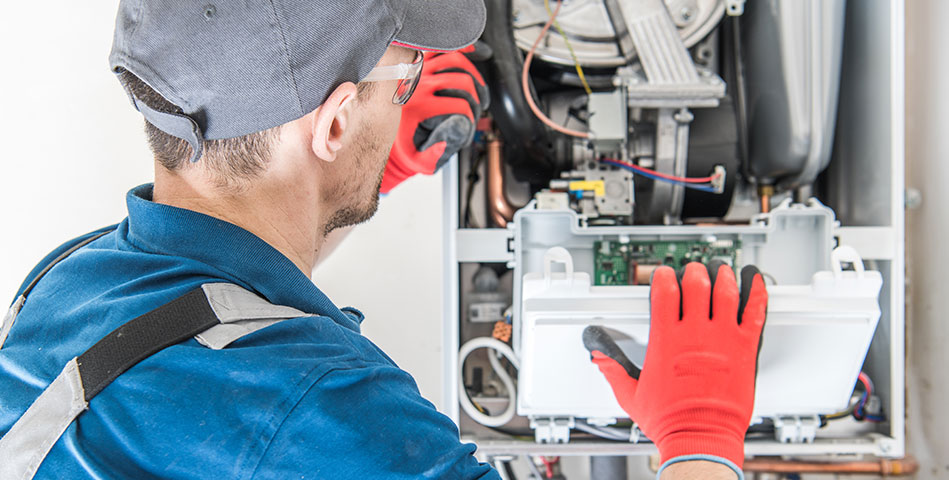Furnaces heat the air in our homes and distribute it throughout the home via ducts. There are notable signs to look out for before you need a furnace replacement or any other furnace repair service. If your furnace stops working, check for the following;
Dirty Filters
Clogged/dirty filters are a leading cause of furnaces issues. If your furnace is on but isn’t dispensing heat as it should, dirty air filters may be to blame. Furnaces produce heat and then distribute it effectively. Their operation can be compromised by many things, including filters with dirt, dust, and debris in them.
Over time, furnace filters collect a lot of dirt that may include debris, hair, dust, etc. If furnace filters aren’t checked and replaced as they should, such dirt can accumulate and block vital airflow. Besides restricting the free flow of hot air, dirty filters can also make the furnace overheat and become damaged partly or entirely.
While furnace filters get dirty at different rates depending on factors like size of a home, presence of pets in the home, outdoor dust levels, etc., furnace filters should be changed once every 12 weeks or as directed by the manufacturer.
Thermostat Problems
Thermostats act as the main heating system control centers. A thermostat determines when a furnace will automatically power itself on/off. Filters aside, many furnaces stop working because of thermostat-related issues.
You can set the thermostat to heat your home after the temperature falls below a certain level. If your home is still cold when the temperature drops below your predetermined temperature level, your furnace thermostat is to blame.
Thermostat issues range from simple problems like “dead” thermostat batteries to more complicated malfunctions that may require complete professional Tulsa furnace replacement.
Circuit Breakers
A malfunctioning circuit breaker can also be responsible for your furnace problems. The circuit breaker could also have tripped. Circuit breakers are prone to tripping when there is a power surge which could be related to other home appliances. Before you declare your furnace broken, check to see if the circuit breaker is on.
In most cases, it’s as easy as turning the circuit breaker on. However, you should determine the underlying electrical issue. For instance, it’s advisable to check other electrical appliances in your home like microwaves, dishwashers, TVs, Iron boxes, etc., if they are working. Ideally, focus on those appliances that consume a lot of power as such appliances are known to cause surges.
If the circuit breaker keeps tripping, you need a qualified electrician to fix the underlying power issue before continuing to use your furnace.
Blower Motor
Furnaces have blower motors that push the hot air out and circulate it throughout the house. Blower motors can be inspected visually. Generally, a functioning blower motor will have a blinking light. If the blower motor isn’t working, your furnace will also be unusually quiet. A motor is supposed to spin. If there is no “action” or hot air being circulated, you need a qualified HVAC expert in Tulsa to inspect the blower motor.
Furnace Ignition Switch
Lastly, you also need to check the ignition switch. If all the above areas don’t seem to be the problem, the furnace ignition may be the problem. A quick inspection, if the switch is on/off, can be done with ease. However, complex furnace ignition switch problems need expert attention.
If the ignition switch remains on, but the furnace isn’t working, you may need expert furnace replacement services. Furnace ignition switches are complex to repair, given they work alongside sensors. If such components get dirty, the switch can malfunction.
Conclusion
While typical furnace issues can be addressed by checking the above, there are other things to check when your furnace stops working. If your furnace isn’t working after you have checked and tried to troubleshoot common filter, thermostat, blower motor, and ignition switch issues, seek professional Tulsa furnace replacement or related services.
Attempting to repair complex furnace issues comes with serious problems that range from high costs if you damage the furnace to electrocution and fire hazards. As per the NFPA, over 48,000 US home fires yearly are linked to heating equipment like furnaces.


